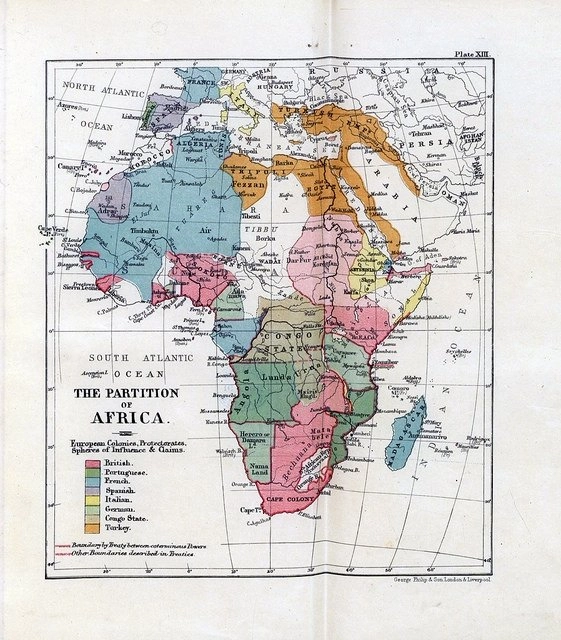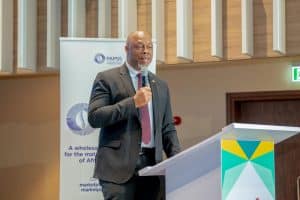
Navigating Challenges for AfCFTA: Learning from the East African Community Failures in Fostering Unity Amidst Diversity
One People, Different Languages
The African Continental Free Trade Area (AfCFTA) stands as a beacon of hope for the continent, promising economic growth, enhanced cooperation, and ultimately, pan-African unity through regional integration. By creating a single continental market of 1.3 billion people, the trade agreement seeks to transform the continent into a global powerhouse with a combined GDP of US$3.4 trillion. However, recent events like the East African Community’s (EAC) inability to use Swahili in parliamentary sessions and the Democratic Republic of Congo’s veto over the East African Community’s budget underscore the challenges that can arise from historical divisions and structural disparities. Thus, ensuring that the AFCFTA succeeds in lifting millions out of poverty requires an imperative to deliberately equip the agreement to address such challenges while fostering unity and cooperation.
A thorny issue in the growth and progress of the African continent in trade, and regional integration, among other developmental capacities is the underlying historical legacies and structural forces from the European invasion. The Legacy of European Invasion, colonization, and the subsequent arbitrary drawing of borders has left deep-rooted divisions across the African continent. The divisions, often manifesting as political, linguistic, and economic disparities create invisible structural forces that hinder the integration and cooperation among African countries. The prevailing situation across many African regions is highlighted by the East African Community’s struggle to use Swahili, even in its legislative house, a widely spoken language in the region, illustrating how historical divisions can impede progress in the AfCFTA implementation as is within regional organizations. Thus, in overcoming these challenges, the AfCFTA must first acknowledge these historical legacies and work towards dismantling the many barriers that they have created.
Inclusivity and Linguistic Diversity
Linguistic diversity within Africa is both a strength and a challenge. While linguistic differences can be a barrier to regional integration and trade under the AfCFTA, they are also a reflection of the rich cultural landscape that characterizes the continent. The AfCFTA therefore has a challenge in ensuring that it proactively addresses linguistic concerns by ensuring that all the official languages of member states are recognized and accommodated within the framework. The collaboration of the secretariats, implementation committees within member states, and the private sector is actively needed to actualize language diversification aspirations. By promoting multilingualism, such as by offering translation services and versions, the agreement can enhance inclusivity, facilitate communication and understanding for collaboration, and mitigate the dominance of English and French languages.
Legal Framework and Flexibility

The East African Community’s struggle due to the lack of Swahili inclusion in its treaty, despite having been included as part of the official languages for the region, is a cautionary tale for the AfCFTA implementation. This implies that a robust legal framework to address issues that divide Africa since her partitioning is crucial. Under the AfCFTA, mechanisms of amendments and adjustments should therefore be given priority to allow the member states to easily adapt as unforeseen challenges arise. The flexibility of accommodating diverse languages, customs, and economic systems among other collaborative issues that emerge in the AfCFTA implementation with enhance the resilience and success of the agreement.
Conflict Resolution Mechanisms
The Democratic Republic of Congo’s veto over the EAC’s budget underscores the importance of effective conflict resolution mechanisms within the AfCFTA. With the framework, dispute resolution among parties is provided for on matters such as foreign direct investment through consultations, mediation, adjudication through a Dispute Settlement Panel and independent arbitration. Litigation on multilateral and regional levels in African has been challenging as it would be considered offensive, there is a lack of technical capacity to use dispute settlement systems, and disputes, especially on intra-trade are often settled through direct discussions.
“The AfCFTA is a bold step towards realizing the dream of pan-African unity and prosperity. However, historical legacies and invisible structural forces cannot be ignored.”
Notably, also, the AfCFTA faces high regard for the protection of national policy spaces in highly divergent regional economic blocs and levels of development which makes consensus decision-making difficult to achieve due to the lack of compatibility with strict legal obligations. This shows that in the implementation of the AfCFTA disputes will be inevitable considering the comprehensiveness of the international agreement. The challenge for dealing with these challenges requires the establishment of clear and impartial dispute resolution processes under the protocol to encourage open dialogue and collaboration while preventing standoffs that hinder progress. Indeed, the agreement has to make true its dispute settlement mechanism promise to preserve the rights and obligations of State Parties under existing provisions and public international law.
A Culture of Exchange
Pan-African unity is not solely an economic endeavor; it’s also about fostering cultural exchange and understanding. Creating a perception of one person under the AfCFTA to support the single 1.3 billion people market can leverage the traits of shared cultural attributes prior to the European invasion. The challenge for the secretariat and individual member states is the promotion of cultural programs, through trade exhibitions and knowledge exchange programs, events, and bilateral endeavors. These initiatives ought to focus on celebrating diversity and promoting mutual understanding among member states for continued collaboration. Cultural events, educational exchanges, and collaborative initiatives can break down stereotypes and build bridges across historical divides. As illustrated by the divisive Swahili and language issues in the East African Community parliament, a poor understanding of shared diversity can generate barriers to the much-needed integration and development of the continent under the AfCFTA.
The economic disparities across AfCFTA member states can often exacerbate the existing structural divisions and issues and undermine cooperative efforts for Africa. The implementation of the AfCFTA has to prioritize investment in critical infrastructure, education, and economic development in less-development regions. This can foster the needed consensus in the implementation of the framework and consequently enhance compatibility with national policy spaces.
The AfCFTA is a bold step towards realizing the dream of pan-African unity and prosperity. However, historical legacies and invisible structural forces cannot be ignored. To address challenges like those experienced by the EAC and the Democratic Republic of Congo, the agreement must prioritize inclusivity, linguistic diversity, flexibility, conflict resolution, cultural exchange, and investment in development. By acknowledging the complexity of the continent’s history and its impact on present-day dynamics, the AfCFTA can navigate these challenges and lead Africa towards a brighter and more united future.



